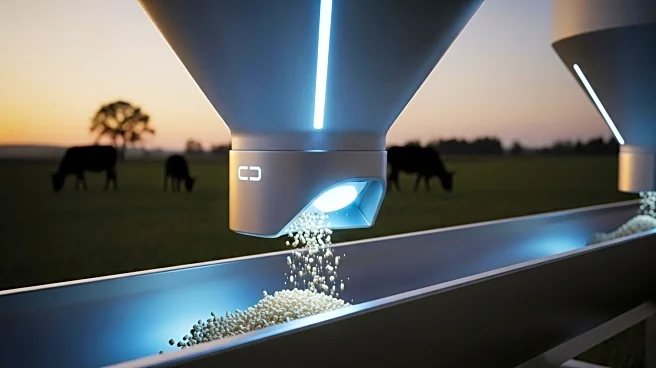What's Happening?
The field of animal nutrition is experiencing rapid advancements through the development of feed supplements. These supplements, which include vitamins, minerals, amino acids, probiotics, prebiotics, enzymes, fatty acids, and phytogenic additives, are designed to improve the health and performance of various livestock species such as ruminants, poultry, swine, and aquaculture species. The targeted supplementation aims to enhance growth rates, reproductive performance, immune function, and overall feed conversion efficiency. This initiative is part of a broader effort to promote sustainable livestock systems and improve food security, aligning with the United Nations Sustainable Development Goal 2, which focuses on zero hunger.
Why It's Important?
The advancement in feed supplements is crucial for the agricultural industry as it seeks to meet growing demands for higher efficiency and welfare standards in animal production systems. By improving the productivity and health of livestock, these supplements contribute to more sustainable and resilient agricultural practices. This is particularly significant in the context of global food security, as enhanced animal productivity can lead to increased food availability. Stakeholders in the agricultural sector, including farmers and producers, stand to benefit from these innovations through improved livestock performance and potentially higher yields.
What's Next?
Research and development in feed supplements are expected to continue, with a focus on species-specific strategies and innovations in supplement delivery systems. The ongoing collection of research invites submissions on these topics, encouraging further exploration and development in the field. As new findings emerge, they may influence industry practices and policies, potentially leading to widespread adoption of advanced supplementation techniques in livestock management.
Beyond the Headlines
The ethical implications of using feed supplements in animal production systems are worth considering. While these innovations aim to improve animal welfare and productivity, they also raise questions about the long-term impacts on animal health and the environment. As the industry progresses, it will be important to balance technological advancements with ethical considerations to ensure sustainable and humane practices.









